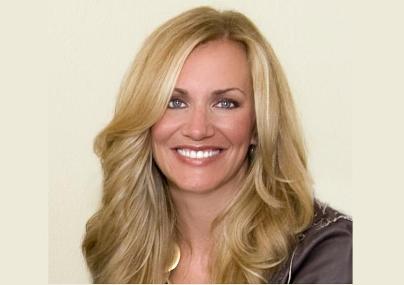Do You "Like" Me? Should I Care? - Julie Roehm

This week, I was in LA with the super smart people at iOTX and Ipsos talking about new media, research tools and dashboards with, gasp, actionable insights for CMO's. As a former marketing chief, I can tell you that there are very few CMO's that lack data. What we lack, more than not, are insights that connect the dots and lead us to actions that address our strategic needs. Research that makes sense of all of the data that we have that are typically disparate and lack any real direction in terms of "what do to do as a result?" or to quote Shelley Zalis of Ipsos, "Where's the there there?". Social media has made that even more difficult. Like many other ill-measured media, social media is a place where most marketers know they must be but few know how to correlate the resource allocation and spend to bottom line growth. And it's not their fault. There are just very few solid measurements out there.
Facebook is the obvious and biggest space for marketers interested in capitalizing on social media. On a daily basis we are inundated with case studies of marketers quests to earn "likes" or "shares" or "fans" on or for their Facebook page efforts. And why? Well, because there have been more than a few studies that suggest that a "like" generates consideration and maybe even a sale, so we watch and try to learn…fast. But the measurement of the "like" and the other Facebook measures only conjures up further questions in my mind. For instance, how do 1000 "likes" compare with say, four feet of space on a retail shelf? If you have a limited budget, how can you compare the value generated from the resources required to generate a meaningful number of "likes" against those for a TV buy, or an in-store promotion? The answers to these questions are really important because at the end of the day, those are the decisions and trade-offs that marketers have to make every day when allocating their budget and resources.
I would submit that to get to that answer, we have to pull apart the measures and then try to re-aggregate them. For instance, what is a "like" really and are they all created equal? Intuitively, I think we can all agree that the answer is "no". I read an article in Ad Age where Dave Williams of Blinq Media said, "Marketers need to view Facebook advertising the way they view visiting a cocktail party -- where the goal isn't to close a deal, but to come away with a business card. Getting a user to "like" a brand or engage with it is like getting that business card. Trying to get a user to buy when you first meet them is a mistake too many marketers make, and it makes them look like an overeager insurance salesman, cornering people at a party. "While this may be true it gets us no closer to the value that "business card exchange" gets us to a measurable result.
I then read an article in the May issue of Trendwatching where they offered some case studies and also some ways to break down the meaning of a "like":
Three quarters of Facebook users have 'Liked' a brand. (Source: AdAge/ Ipsos, February 2011)
• Juicy Couture found that their product purchase conversion rate increased by 160% after installing social sharing features (Source: CreateTheGroup, February 2011)
• Incipio Technologies, a gadget accessory retailer, found that referrals from Facebook had a conversion rate double the average (Source: Business Insider, March 2011)
• But it's not just about Facebook. Take for example the explosive rise of the daily deal site Groupon, which used referrals from friends and colleagues to drive sales of over 40 million deals in the two and a half years since it launched in November 2008, via email ;-)
To make sense of this, Trendwatching.com broke down the Facebook measures into something they call the F-Factor. So, according to them, here are just five of the ways that the F-FACTOR influences consumption behavior:
1. F-DISCOVERY: How consumers discover new products and services by relying on their social networks.
2. F-RATED: How consumers will increasingly (and automatically) receive targeted ratings, recommendations and reviews from their social networks.
3. F-FEEDBACK: How consumers can ask their friends and followers to improve and validate their buying decisions.
4. F-TOGETHER: How shopping is becoming increasingly social, even when consumers and their peers are not physically together.
5. F-ME: How consumers' social networks are literally turned into products and services.
Whether you like these measures or are in the midst of exploring your own, the fact is that we need some that are more meaningful than what we have today. Social media is important but we don't know yet how important and if we are to begin to understand the power of the Tweet, the "like", the post, or the share, we are going to need to start to break down the social chimney and apply these measures to the myriad of other measures we have in every other medium. While we have become far more quantitative in marketing and have generated much better attribution of our efforts to the bottom line, we are also becoming overwhelmed with data that make no sense when compared to everything else. Social media, while the darling of today, has the chance to be truly meaningful and even to help us make sense of the measures in other media. So, while we are fascinated and impressed by how much we are "liked", that alone is not enough to convince the C-suite nor to sustain the mediums popularity.
Julie Roehm is currently consulting for a host of companies in the area of marketing strategy and execution. The companies include large media companies, ad agencies, interactive television technology companies, financial services, private equity, media companies, automotive, new media start-ups and others. She frequently is engaged to speak at industry and corporate events globally and is a periodic guest contributor on Fox Business News, blogs for iMedia and is the official marketing auto blogger for AOL. Julie can be reached at roehm.julie@gmail.com.
Read all Julie's MediaBizBloggers commentaries at Julie Roehm.
Check us out on Facebook at MediaBizBloggers.com
Follow our Twitter updates @MediaBizBlogger
MediaBizBloggers is an open-thought leadership blog platform for media, marketing and advertising professionals, companies and organizations. To contribute, contact Jack@mediadvisorygroup.com. The opinions expressed in MediaBizBloggers.com are not those of Media Advisory Group, its employees or other MediaBizBloggers.com contributors. Media Advisory Group accepts no responsibility for the views of MediaBizBloggers authors.


